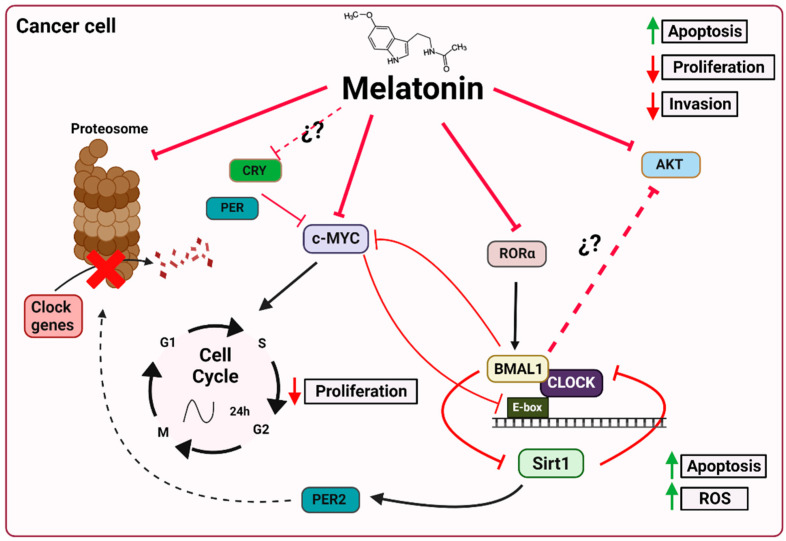Figure 3.
Proposed mechanisms by which melatonin affects the circadian machinery of cancer cells. By inhibiting the proteasome, melatonin can act post-translationally to regulate the circadian clock by stabilizing proteins, depending on the time of day and the levels of this hormone. Melatonin, together with BMAL1, PER and CRY, represses c-Myc, which arrests the cell cycle, thus decreasing cell proliferation. In addition, c-MYC binds to the E-box region and regulates the expression of certain clock genes. Through the MT1 receptor, melatonin blocks the transcription of RORα and also the activation of BMAL1 expression, as well as of Sirt1, with consequent proapoptotic and prooxidant effects. In addition, SIRT1 regulates BMAL1 by controlling acetylation levels and PER2 promoting its degradation. Melatonin inhibits the AKT pathway, which may occur via BMAL1. The inhibition of this pathway causes an increase in apoptosis and a decrease in cell proliferation and invasion. Brain and muscle aryl hydrocarbon receptor nuclear translocator-like protein 1 (Bmal1); circadian locomotor output cycles kaput (Clock); Chryptochrome (Cry); Period (Per); orphan retinoic acid receptor-related alpha (RORα); reactive oxygen species (ROS); sirtuin 1 (Sirt1). Image created using BioRender.com (accessed on 28 December 2022).

